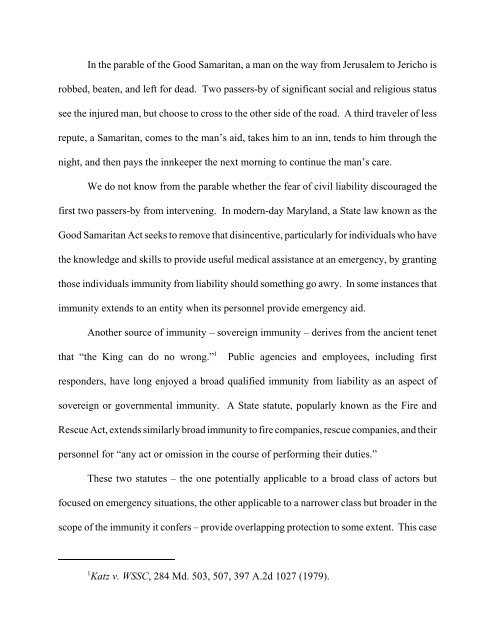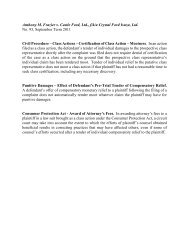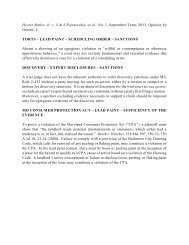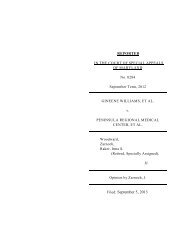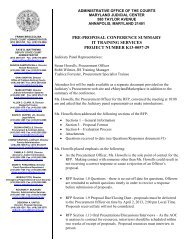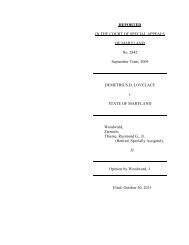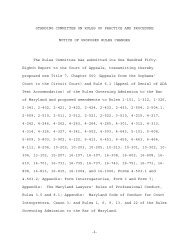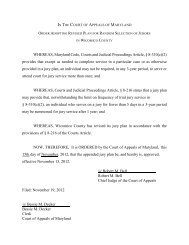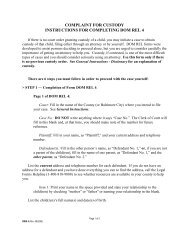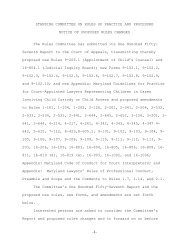24/12 - Maryland Courts
24/12 - Maryland Courts
24/12 - Maryland Courts
Create successful ePaper yourself
Turn your PDF publications into a flip-book with our unique Google optimized e-Paper software.
In the parable of the Good Samaritan, a man on the way from Jerusalem to Jericho is<br />
robbed, beaten, and left for dead. Two passers-by of significant social and religious status<br />
see the injured man, but choose to cross to the other side of the road. A third traveler of less<br />
repute, a Samaritan, comes to the man’s aid, takes him to an inn, tends to him through the<br />
night, and then pays the innkeeper the next morning to continue the man’s care.<br />
We do not know from the parable whether the fear of civil liability discouraged the<br />
first two passers-by from intervening. In modern-day <strong>Maryland</strong>, a State law known as the<br />
Good Samaritan Act seeks to remove that disincentive, particularly for individuals who have<br />
the knowledge and skills to provide useful medical assistance at an emergency, by granting<br />
those individuals immunity from liability should something go awry. In some instances that<br />
immunity extends to an entity when its personnel provide emergency aid.<br />
Another source of immunity – sovereign immunity – derives from the ancient tenet<br />
that “the King can do no wrong.” 1<br />
Public agencies and employees, including first<br />
responders, have long enjoyed a broad qualified immunity from liability as an aspect of<br />
sovereign or governmental immunity. A State statute, popularly known as the Fire and<br />
Rescue Act, extends similarly broad immunity to fire companies, rescue companies, and their<br />
personnel for “any act or omission in the course of performing their duties.”<br />
These two statutes – the one potentially applicable to a broad class of actors but<br />
focused on emergency situations, the other applicable to a narrower class but broader in the<br />
scope of the immunity it confers – provide overlapping protection to some extent. This case<br />
1 Katz v. WSSC, 284 Md. 503, 507, 397 A.2d 1027 (1979).


